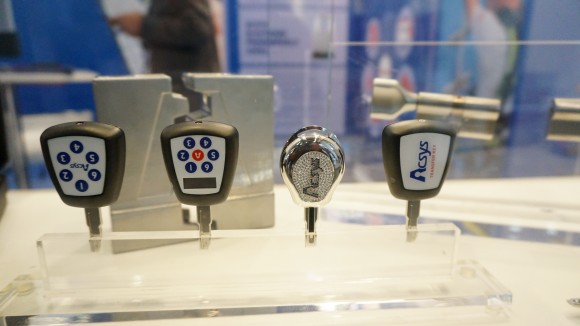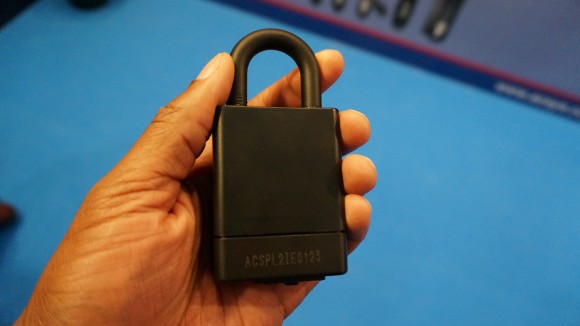aNewDomain — This year’s tech craze is the Internet of Things (IoT). I’m fascinated by the ways our homes and devices can connect over the Internet for a variety of things, but right now I really don’t see many practical uses of it. As I strolled pass the Acsys Technologies at Mobile World Congress, I took it to be a booth based on IoT. I’m glad I did a double take. It clearly was not.

Image credits Ant Pruitt
Michael Sothan spoke to me about this “network connected” lock and key system. “Network” as in cellular network. In other words, Acsys offers incredibly strong lock systems for homes and enterprises. To doubly secure it the locks come with a special key that has an embedded sensor.

The sensor is connected to the key and disengages the lock once it’s inserted and a digital code has been entered. The digital code is transmitted via SMS to a server which is connected to the locks and opens them once the code is verified. The use of digital codes reminds me of the popular Google Authenticator service used by webpage admins. Only this isn’t over SSL connections, it’s through SMS protocol carried over cell towers. This two-factor authentication (the key and digital code) opens the lock.
Mat Lee has explained why SMS isn’t secured. What happens if someone hacks the message in transit to the server? How is the lack of security on SMS handled? “It’s just numbers,” says Michael Sothan, business development director of Acsys. He’s right, they can hack numbers all they want, but the locks will not disengage unless the proper key (which has a sensor on it) is used.
The tech is in place and popular in Mexico, China and other Asian countries. Acsys is looking to expand into the U.S. and the rest of the world this year. Several different locking items are available, including deadbolts for homes and offices. Acsys is really proud of its high quality padlocks, which can be found in secure locations such as substations and construction sites. Check the the Acsys website for more information.
For aNewDomain, I’m Ant Pruitt.













